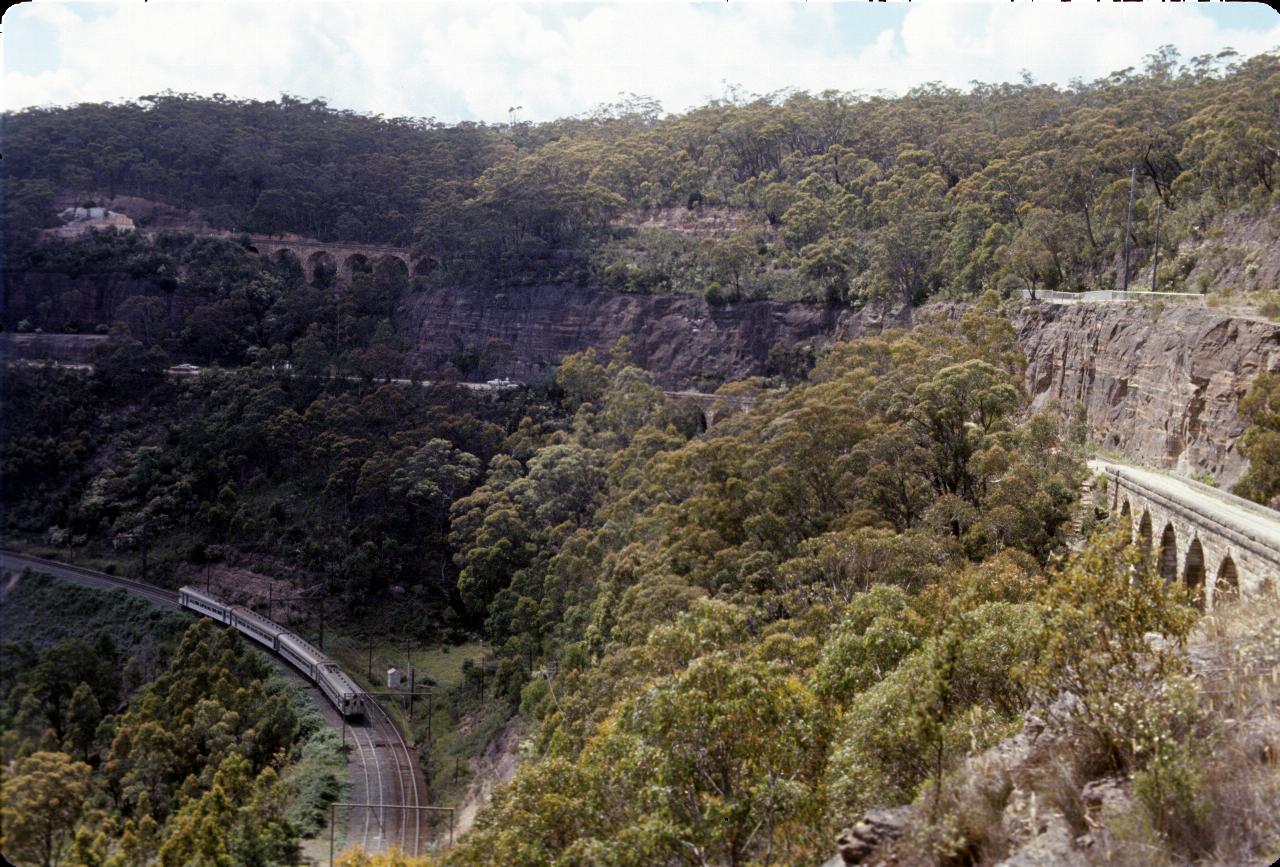

The #italic Lithgow Zig Zag was the initial way to have trains descend the western side of the Blue Mountains. This photo shows the basic structure - the line zigs and zags its way down the side of the moutains. (Americans call this a switch-back, which is perhaps a more indicative name. The descending train travels down the upper line until it comes to an end. It then reverses directions after being switched to the next descending segment; in this case including the stone bridge on the right. This operation is again repeated at the far end, with the train now going forward again.
The sequence is reversed for trains climbing the hill.
The train in the lower left is on the main western line headed to Sydney. The zig zag has been out of service for many years, being replaced by a series of tunnels, allowing a suitable grade for trains, without the very slow process of stopping and reversing to climb. The new line is still one of the two steepest rail grades in New South Wales.
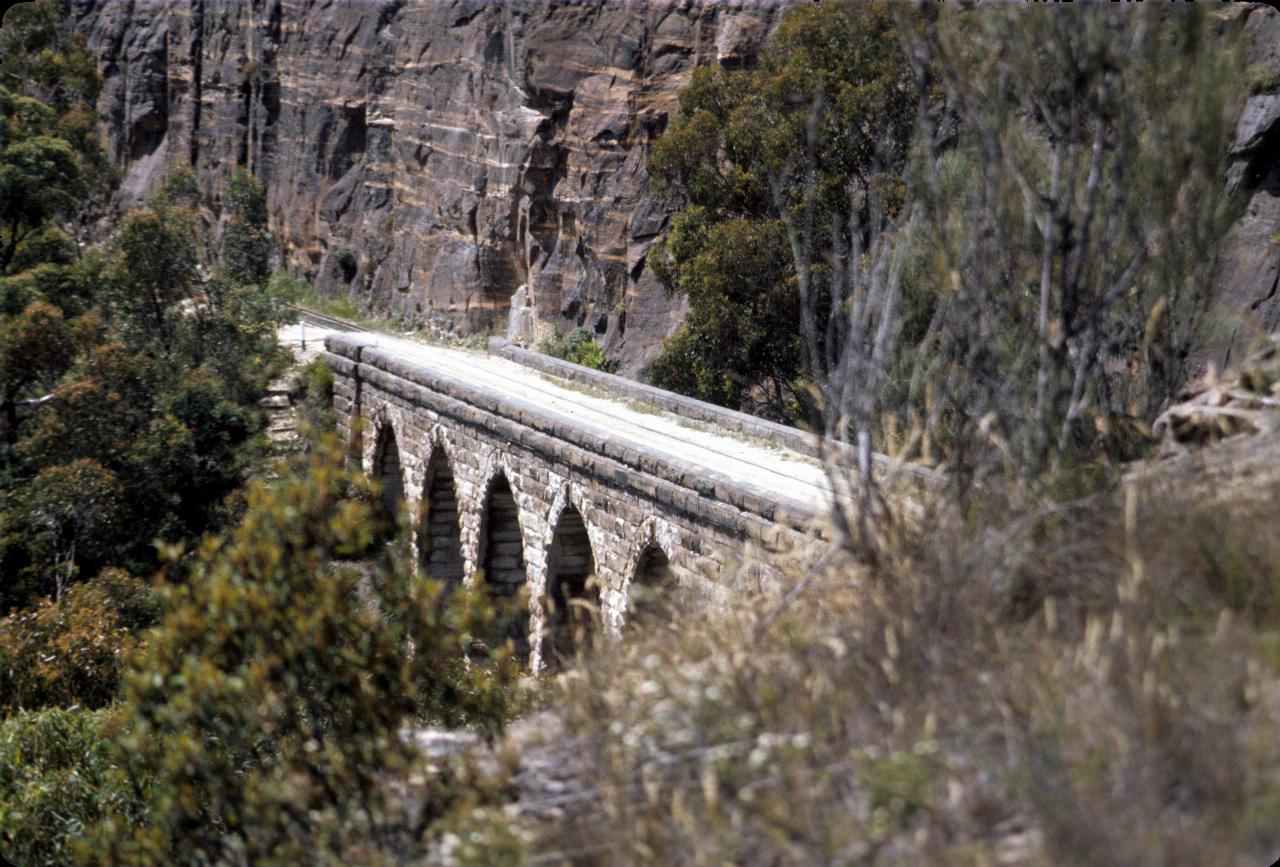
This sandstone bridge is indicative of the time it was built - 1869. The tunnel diversion was opened in 1910.
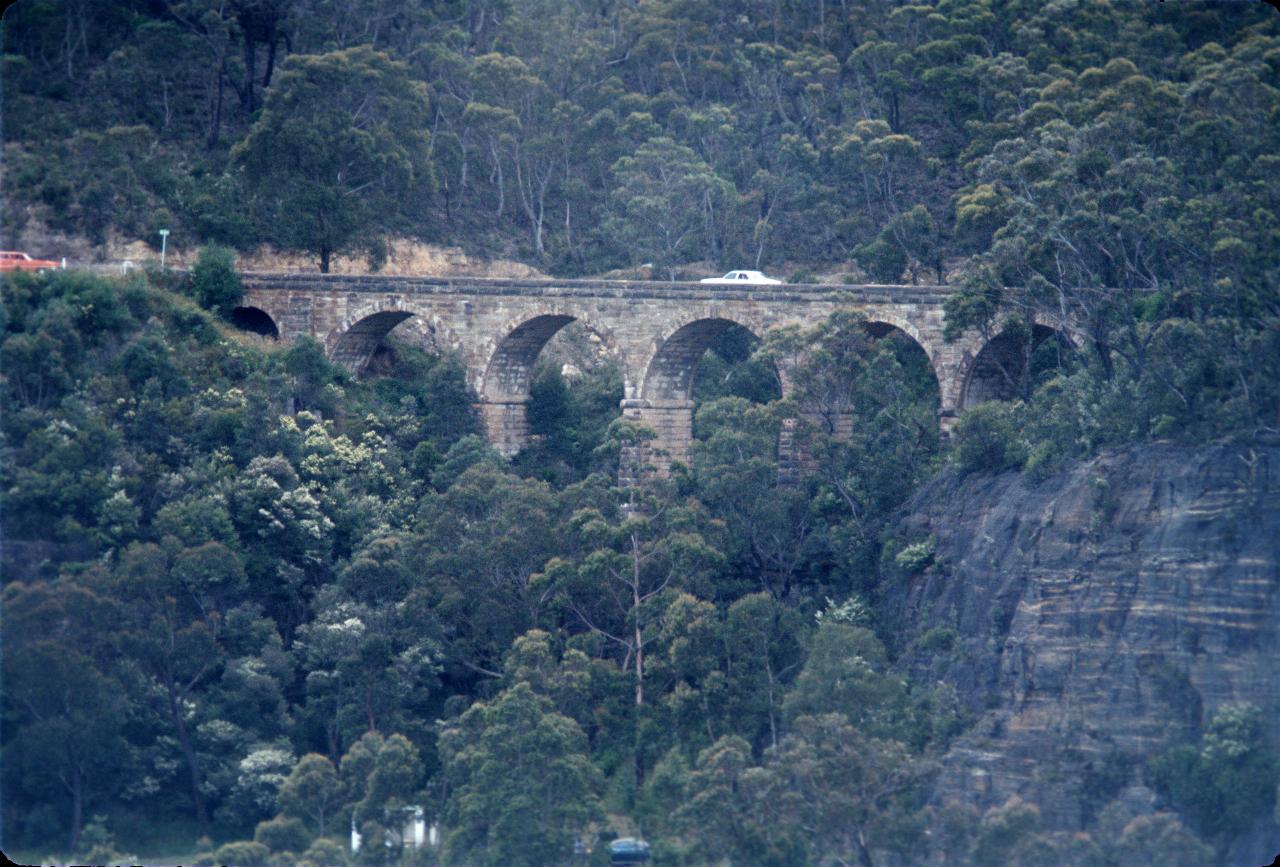
Another of the sandstone bridges of the zig zag. At this time, driving to the bottom was not a problem.
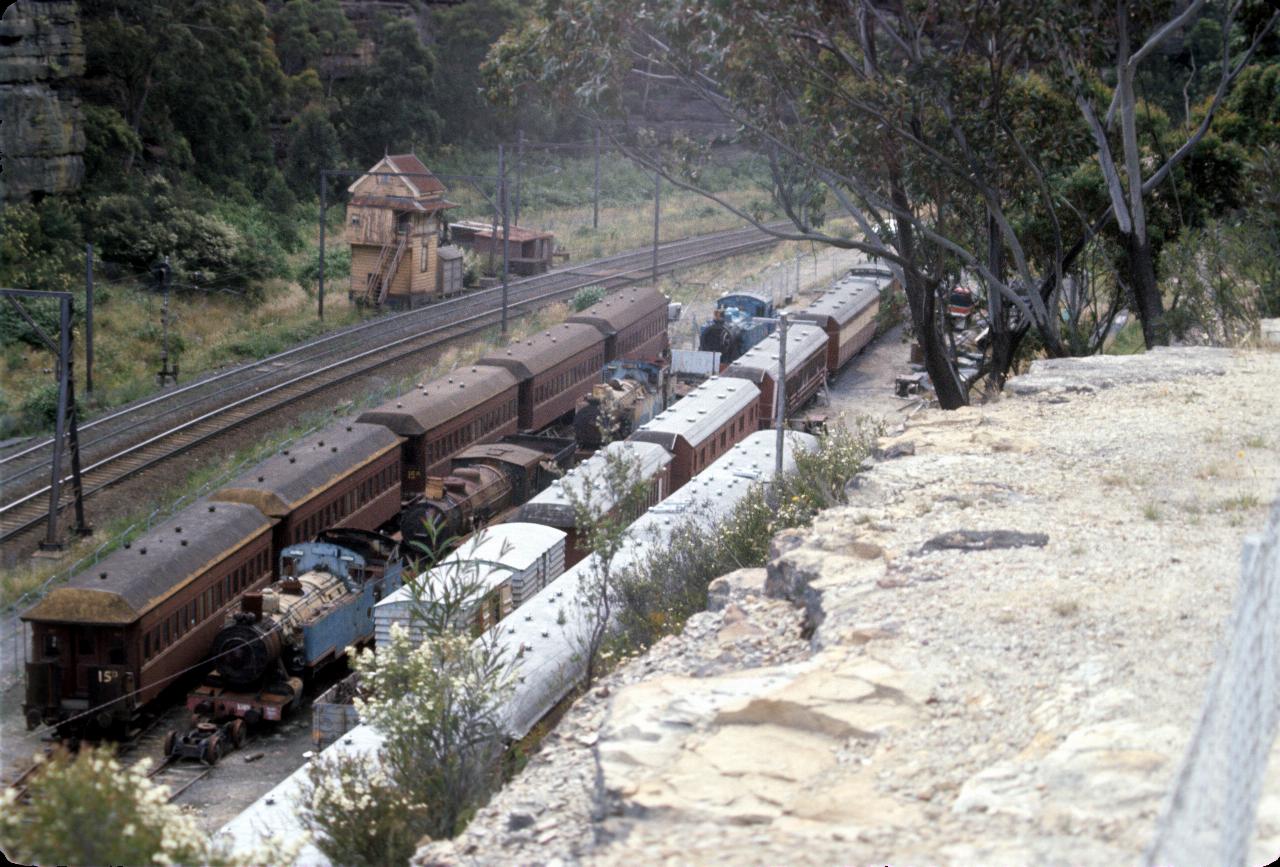
This rolling stock was acquired from Queensland Railways, and is thus narrow gauge. Since these photographs were taken, a narrow gauge line has been laid over the old roadbed, and the zig zag is once again operating, but as a tourist railway.
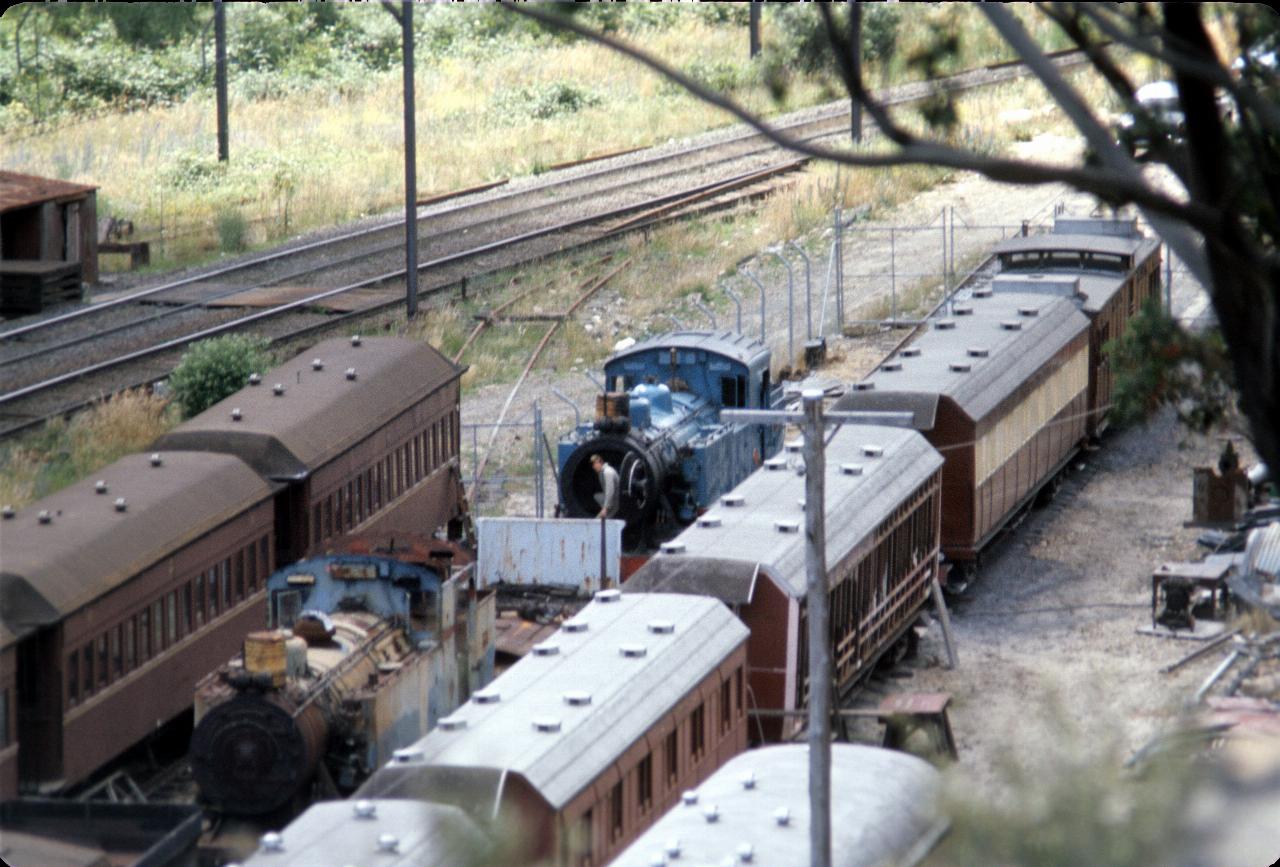
The blue locomotive is the first to be restored. Which makes sense, as it blocks the way for any of the others! I often wondered about the front of steam engines - now you know it opens up to allow access to the boiler.
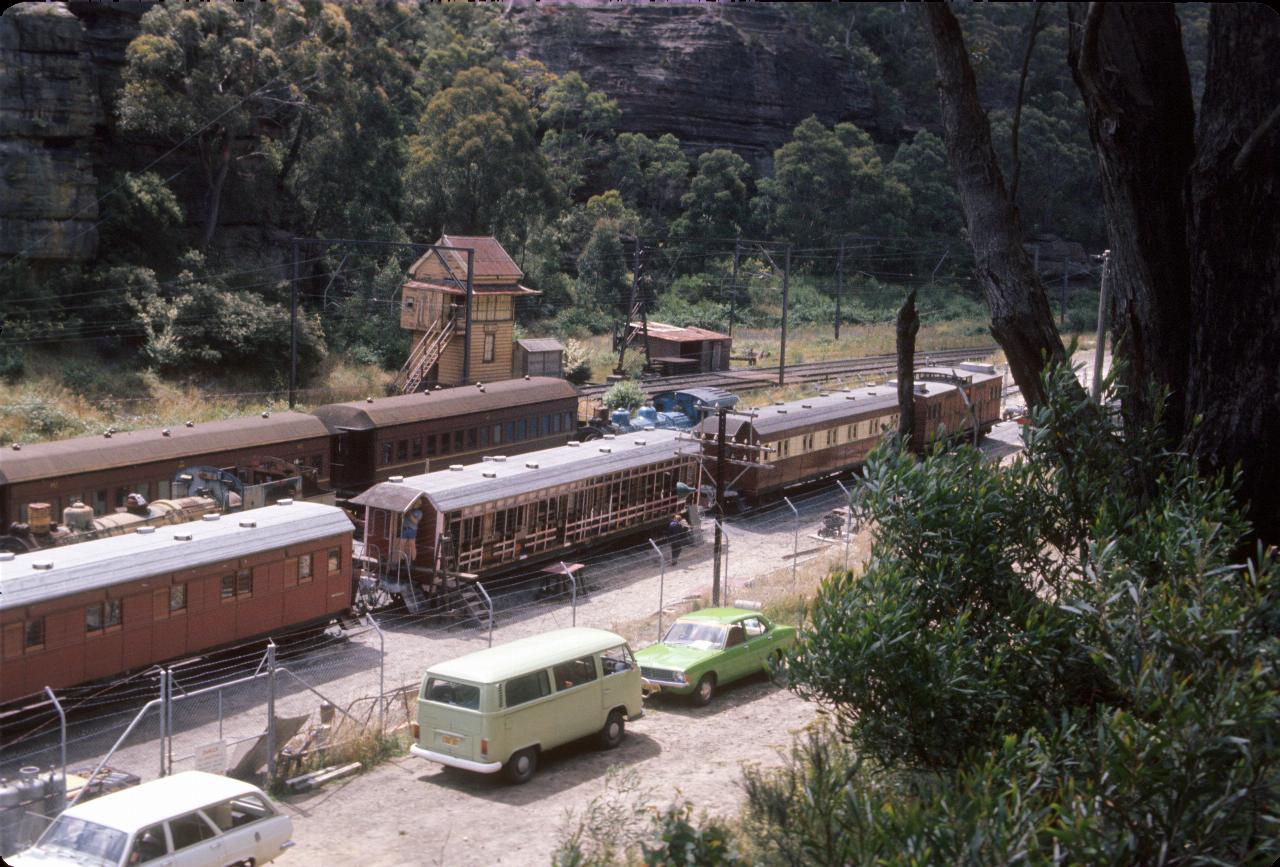
Adjacent to the locomotive under going restoration is a carriage in a similiar state.
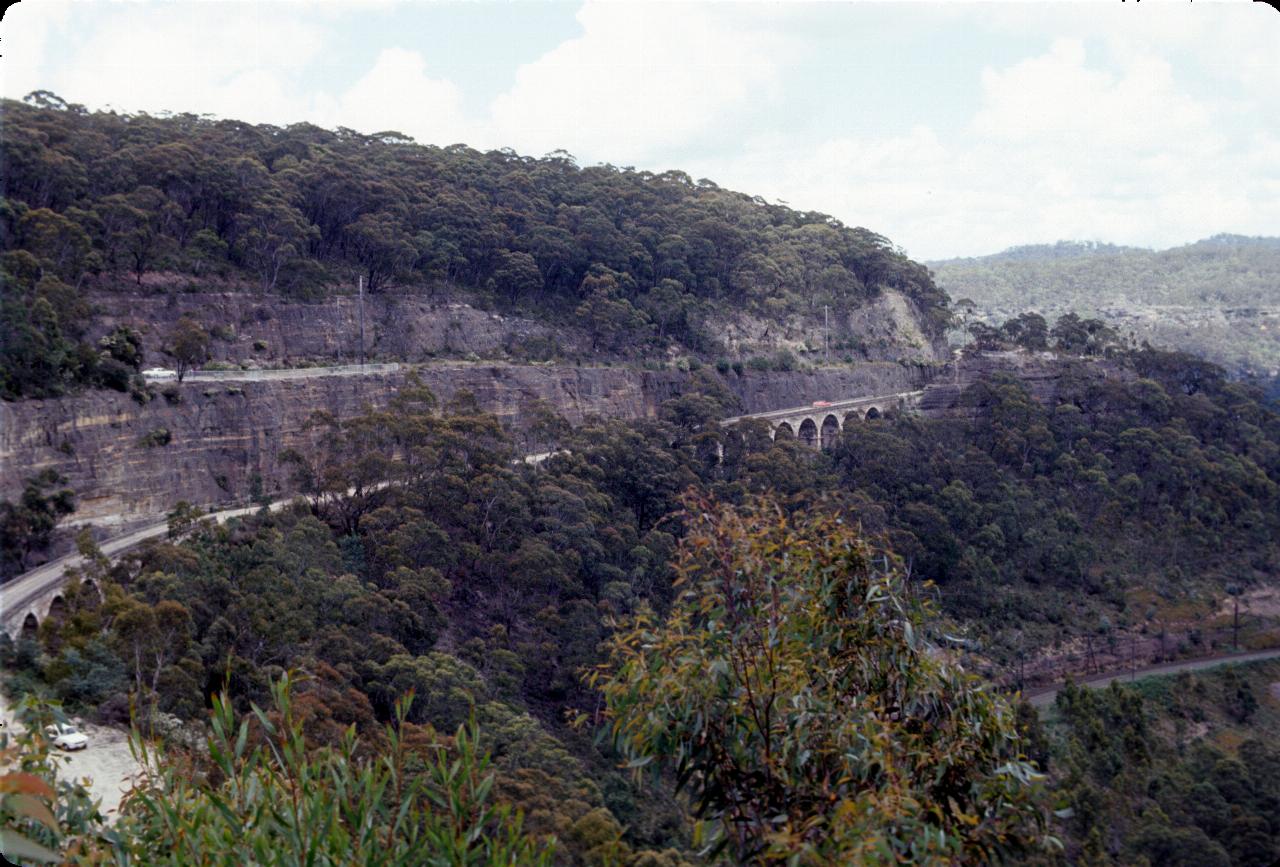
The zig zag as seen from the eastern end, looking west towards Lithgow. The main western line is in the lower right.